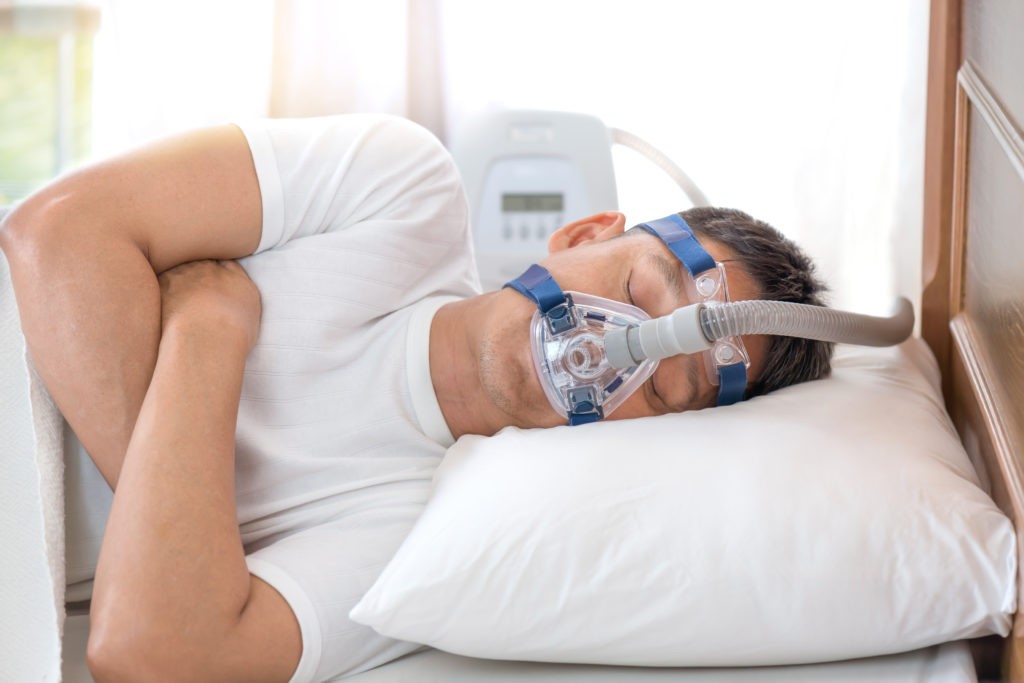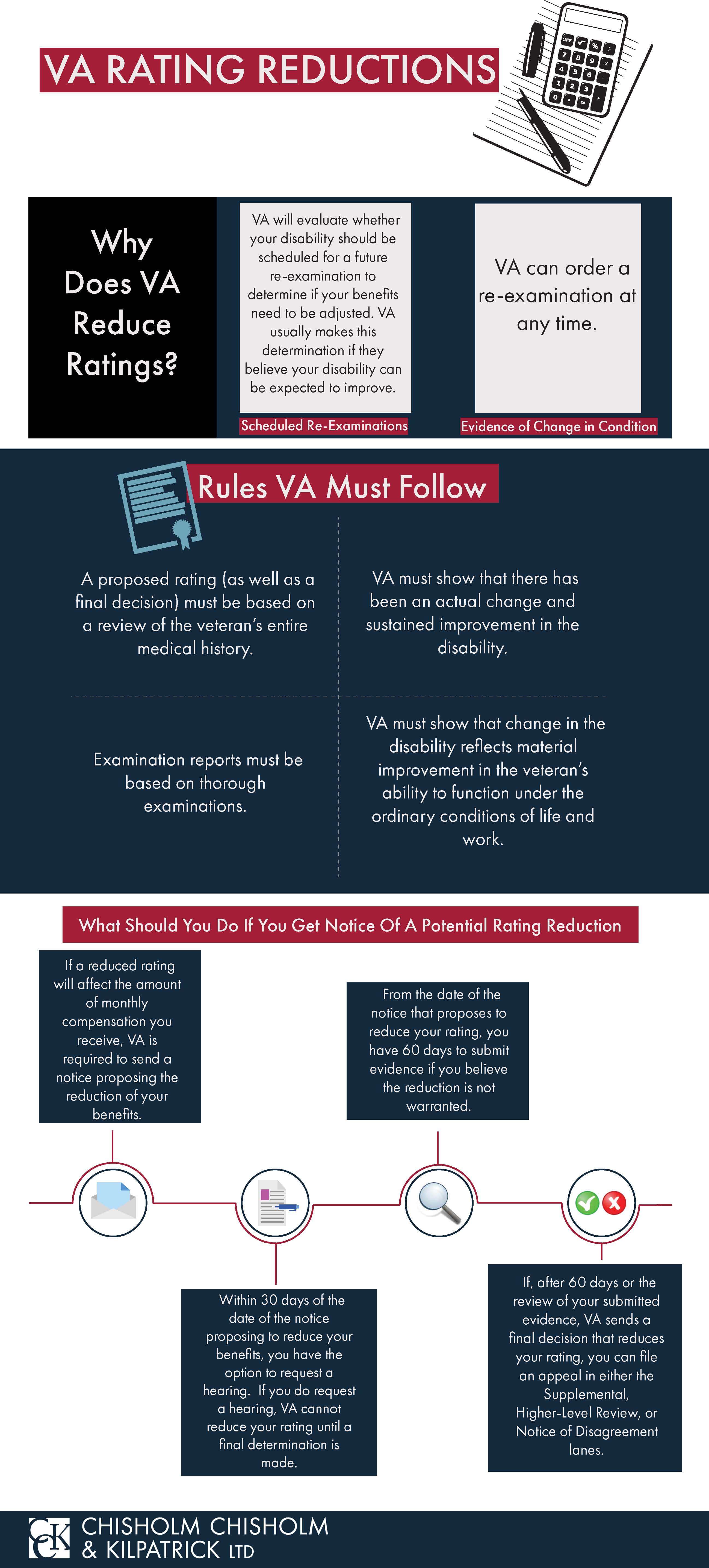Compensation and Pension (C&P) Exams for Sleep Apnea

CCK Law: Our Vital Role in Veterans Law
What is Sleep Apnea?
Sleep apnea is a potentially serious sleep disorder in which a person’s breathing is repeatedly interrupted during the course of the night.
This condition is very common among veterans, with the Department of Veterans Affairs (VA) claiming in their 2024 Benefits Report that about 660,000 veterans currently receive disability compensation for the disorder. This makes it the second-most common respiratory condition among veterans.
VA uses C&P exams to determine the severity of a veteran’s sleep apnea and whether it is service connected. There are three main types of sleep apnea, including the following:
- Obstructive Sleep Apnea – the most common form of sleep apnea; occurs when the throat muscles intermittently relax and block your airway during sleep
- Central Sleep Apnea – occurs when your brain does not send proper signals to the muscles that control breathing
- Complex (Mixed) Sleep Apnea Syndrome – occurs when someone has both obstructive sleep apnea and central sleep apnea
The signs and symptoms of these three types of sleep apnea tend to overlap, sometimes making it difficult to determine which type you have. Generally speaking, the most common symptoms include: loud snoring, gasping for air during sleep, awakening with a dry mouth, morning headache, insomnia, hypersomnolence (i.e., excessive daytime sleepiness), and difficulty concentrating.
For mild cases of sleep apnea, doctors may suggest lifestyle changes such as losing weight or quitting smoking, if applicable. In more serious cases, doctors may prescribe the use of a continuous positive airway pressure (CPAP) machine. A CPAP machine delivers air pressure through a mask while you sleep that is somewhat greater than that of the surrounding air. This allows your upper airway passages to remain open, thereby preventing apnea and snoring.

What is a Compensation and Pension Examination (C&P Exam)?
A Compensation and Pension examination (C&P exam) is a medical examination of a veteran’s disability, performed by a VA healthcare provider, or a VA contracted provider. VA uses C&P exams to gather more evidence on a veteran’s claimed condition before issuing a decision and assigning a rating. Most commonly, C&P exams are used to (1) confirm or deny service connection, and/or (2) establish the severity of a veteran’s disability. Before the exam, the examiner should review your entire claims file, which contains previously submitted evidence and medical treatment records. The exam itself usually only lasts about 15-20 minutes, but can range anywhere from 5 minutes to several hours.
How Does VA Diagnose Sleep Apnea?
In order to confirm a sleep apnea diagnosis for VA disability compensation purposes, VA requires that a sleep study be conducted. If you have been previously diagnosed with sleep apnea, but have not undergone a sleep study, VA will not consider that sole diagnosis enough evidence to verify eligibility for compensation.
What Happens During C&P Exams for Sleep Apnea?
During the C&P exam for sleep apnea, the examiners will ask questions about your condition and how it affects you. VA examiners might complete a Disability Benefits Questionnaire (DBQ) for sleep apnea as well. This DBQ is formatted for examiners to “check a box” next to descriptions that most accurately depict the severity of your sleep apnea. For example, examiners might check off whether you use a CPAP machine. It is important for you to be honest about your symptoms so that they can be properly documented. Bringing a friend or family member to your exam may be beneficial so that they may serve as a witness to the symptoms that impact your daily life.

Re-Examinations for Sleep Apnea
In some cases, VA will schedule veterans for a re-examination of their sleep apnea to determine if the condition has improved. If it has, VA may be able to propose a rating reduction. However, there are certain rules VA must follow when proposing to reduce a veteran’s rating. Specifically, the proposed rating must be based on a review of the veteran’s entire medical history. Furthermore, VA must show that there has been material improvement in the veteran’s ability to function under the ordinary conditions and stressors of life and work. If this is the case, veterans have a chance to submit argument and evidence against the proposed rating reduction.
In some cases, VA cannot schedule veterans for re-examinations for their sleep apnea. Typically, VA will not re-evaluate your sleep apnea under the following conditions; however, there may be exceptions on a case-by-case basis:
- You are over the age of 55
- You have a stabilized rating (5 years or more). Any rating that has remained at the same level for 5 years or longer is considered “stabilized.” In order to re-evaluate stabilized ratings, VA must show sustained improvement. VA cannot use just one re-examination to show sustained improvement. Rather, it must show through medical records as well as the re-examination that you are not just temporarily experiencing improvement. Or, VA must show that the evidence in your file predominately demonstrates sustained improvement with regard to your sleep apnea.
- You have a total disability rating (100%). Here, VA must provide evidence that your condition has improved such that there has been an observable change in your ability to function under the ordinary conditions of daily life.
- You have a permanent disability. If your sleep apnea is considered permanent in nature, this means that VA is reasonably certain, based on medical evidence, that the level of impairment will continue for the rest of your life with zero or close to zero chance of improvement, you should not be scheduled for a re-examination.
- You have a continuous rating for 20 years or more. VA cannot re-evaluate or reduce a continuous rating below the original level it was assigned.
If any of the above situations apply to you, you may not be subject to new C&P exams for sleep apnea for reevaluation purposes.
Tips for Attending C&P Exams for Sleep Apnea
It is important for veterans to be completely honest with their examiners. Do not downplay any of your symptoms that are resulting from sleep apnea. It is also important to assume that the examiner is observing everything that you are doing and writing down all of the comments you are making. Therefore, being as honest as possible about the severity of your symptoms will hopefully produce accurate results and capture your full disability picture.
Furthermore, veterans must attend their scheduled C&P exams. If you do not attend, it is possible that VA will deny or reduce benefits without much deliberation. If you cannot attend, you must notify VA right away and work to re-schedule.
Frequently Asked Questions
How does VA test you for sleep apnea?
VA will have veterans undergo a sleep study in order to test them for sleep apnea. This study will likely take the form of a polysomnogram conducted at a sleep center, though a home sleep apnea test (HSAT) conducted at the veteran’s home may also be accepted.
It is important for veterans to keep in mind that VA may not accept sleep apnea diagnoses that were given without the veteran undergoing a sleep study. In cases like these, VA will usually request the veteran take part in a sleep study in order to confirm their diagnosis before considering them for disability compensation.
What are the new VA rules for sleep apnea?
VA has not yet implemented any new rules for sleep apnea when it comes to rating veterans for disability benefits. However, it is possible this will change in the near future with the proposed changes VA is considering implementing to disability ratings for sleep apnea.
Under current rules, VA issues potential sleep apnea ratings of either 0, 30, 50, or 100 percent. Additionally, veterans who must treat their sleep apnea with a CPAP machine receive an automatic 50 percent disability rating for their condition.
Under VA’s proposed future rules, these ratings would change to 0, 10, 50, or 100 percent. In addition, veterans would be rated at 10 percent or higher only if their sleep apnea remains symptomatic after receiving treatment. In other words, the use of a CPAP machine would no longer guarantee the veteran a 50 percent rating for their sleep apnea.
These new proposed ratings would be as follows:
- 100 percent – Treatment ineffective (as determined by sleep study) or unable to use treatment due to comorbid conditions; and with end-organ damage
- 50 percent – Treatment ineffective (as determined by sleep study) or unable to use treatment due to comorbid conditions; and without end-organ damage
- 10 percent – Incomplete relief (as determined by sleep study) with treatment
- 0 percent – Asymptomatic with or without treatment
Notably, these new rules have not yet been implemented by VA, nor has VA announced a date for their implementation. It is also possible VA will either alter these proposed rule changes or even dispense with them entirely.
What evidence helps a sleep apnea VA claim?
In-service records, medical records, and lay evidence are all valuable to submit to bolster a sleep apnea VA claim. Additionally, VA will likely have the veteran undergo a sleep study to confirm their diagnosis, if the veteran has not done so already.
Some examples of these pieces of evidence include:
- In-service records – If the veteran suffered an injury or toxic exposure during their military service that may have contributed to their sleep apnea, an in-service incident report or medical report detailing the event would likely support the veteran’s disability claim.
- Medical records – If the veteran is currently seeing a doctor to treat their sleep apnea, any relevant treatment records may help their disability claim. If the veteran’s diagnosis was confirmed by a past sleep study, it might also benefit the veteran to submit proof of this to VA, as well.
- Lay evidence – Personal accounts from the veteran or their friends, family, or fellow servicemembers may also help fill in the gaps of a veteran’s sleep apnea disability claim. For instance, a lay statement from the veteran’s spouse attesting to the veteran’s snoring and troubled sleep may help to prove the severity of their symptoms.
About the Author
Share this Post

